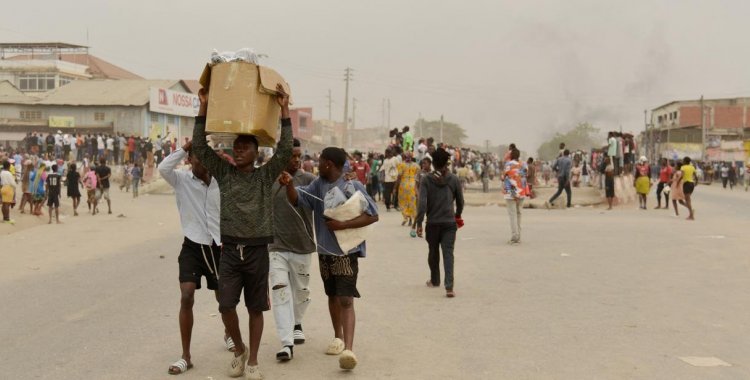
In the wake of a recent taxi drivers’ strike that escalated into widespread unrest and vandalism, concerns are mounting among economists and social researchers over the lasting impact on Angola’s fragile business environment.
The Angolan government has pledged a support package worth 50 billion kwanzas aimed at compensating businesses damaged during the upheaval.
More than 162 establishments—including convenience stores, supermarkets, pharmacies, and retail stalls—were looted in multiple provinces, threatening jobs and local economies.
Economist José Macuva acknowledged the government’s good intentions in helping affected businesses, but expressed unease about how the financial burden of compensation might ultimately fall on taxpayers once again.
“While it is commendable that the government seeks to assist companies, there is a risk that the cost will be absorbed by the public, which raises concerns about fiscal sustainability,” he said.
Hermenegildo Quexigina, a researcher at the Center for Research in Social and Economic Sciences (CISE) at Agostinho Neto University, warned of broader consequences: “This kind of instability damages investor confidence and undermines economic growth. The business environment must be protected to foster sustainable development.”
Legal expert Carlos Cabaça highlighted the role of Angola’s legal system in addressing vandalism cases and emphasized the importance of upholding the rule of law to restore order.
Meanwhile, political voices have also weighed in. Filomeno Vieira Lopes, president of the Democratic Bloc, condemned what he described as intimidation and arbitrary arrests of citizens involved in the demonstrations. Speaking at a press conference on August 4, he called for urgent dialogue between authorities and social groups to address the root causes of the strike.
Civil society organizations have echoed calls for greater transparency and accountability in managing both the protests and the government’s response, emphasizing the need for inclusive solutions to Angola’s ongoing social challenges.
As Angola grapples with the aftermath of the unrest, the government’s support package and the wider political dialogue will be closely watched as indicators of the country’s commitment to stability and economic recovery.



